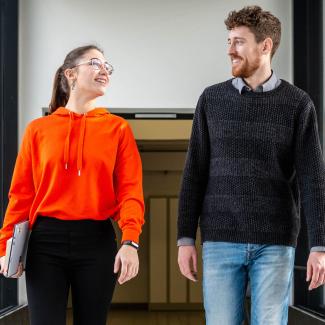Industrial culture
Industrial Culture stands for the study and examination of the economic, technological and cultural history of modernity. A major focus is on communicating the results of recent research, for example in museums.
The master’s program in Industrial Culture provides in-depth knowledge of economic, social and technological developments since modernity, and students practice researching and communicating this knowledge in a practice-oriented way. The program is aimed primarily at graduates with a bachelor's degree in history, economics, art history, archaeology, architecture, museum studies or heritage conservation. With its great tradition of industrial history and its numerous industrial monuments and technical museums, Saxony offers an ideal environment for teaching and research in industrial culture.
- Faculty
-
Faculty of Business Administration (Faculty 6)
- Degree
-
Master of Science (M. Sc.)
- Standard period of study
-
4 Semester
- Part-time possible
-
No
- Start of studies
-
Winter semesterSummer semester
- Admission requirement
-
- A first professionally qualifying university degree of at least six semesters
- Proof of the required professional aptitude in a qualification assessment procedure
Language requirement
- Application: with at least B1 level German
- Admission to the degree program: with C1 level German (e.g. DSH-2)
- Language courses and DSH exam at TUBAF
- Course language
-
German
- Conservation and cultural management
- Research at universities
- Museums of technology and industry
- Scientific education and public relations
- Journalistic reporting
- Planning and architectural offices
Introduction to the degree program
Presentation of the Industrial Archaeology (Bachelor) and Industrial Culture (Master) degree programmes at TU Bergakademie Freiberg on Online Campus Day 2021.



